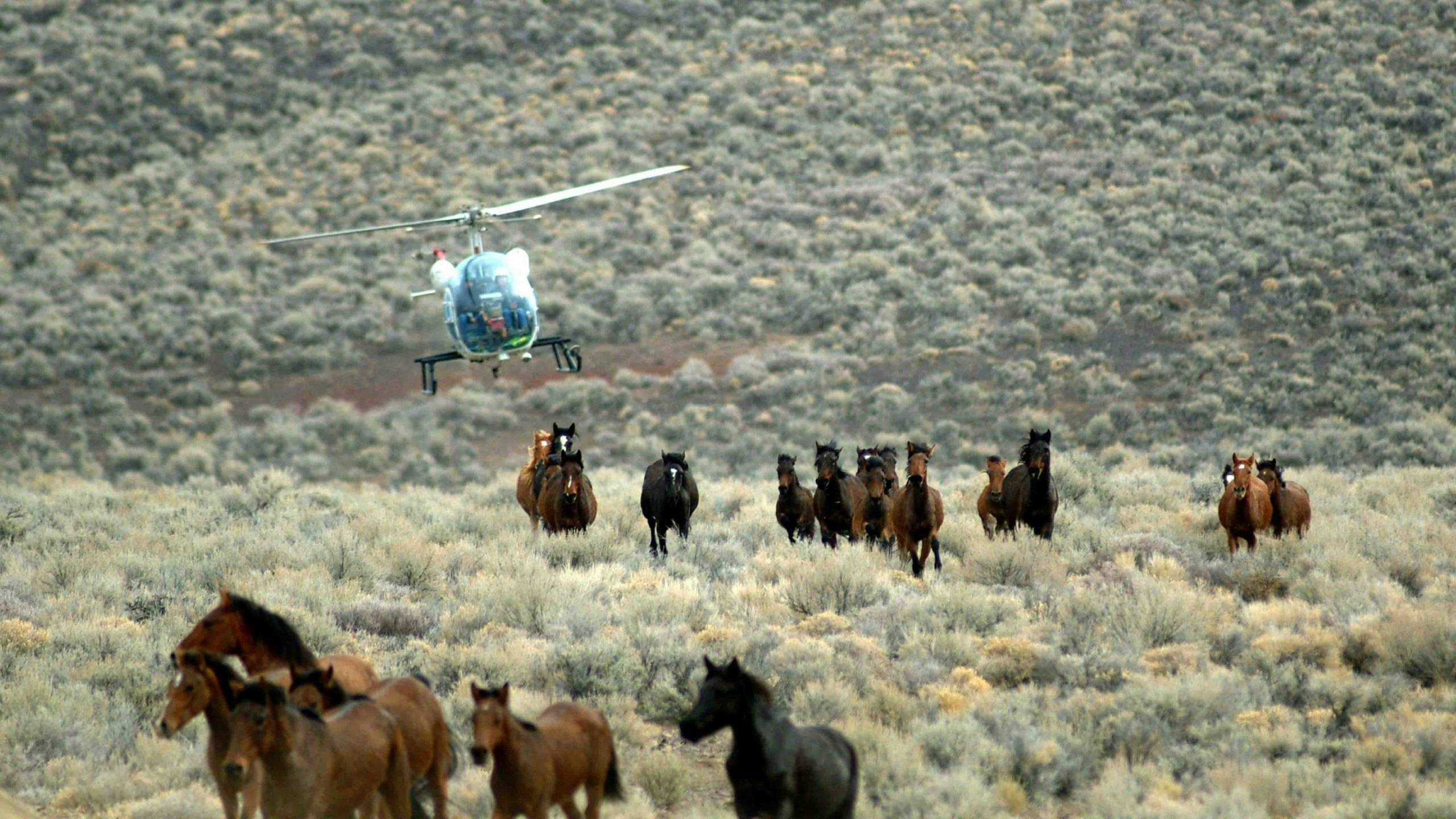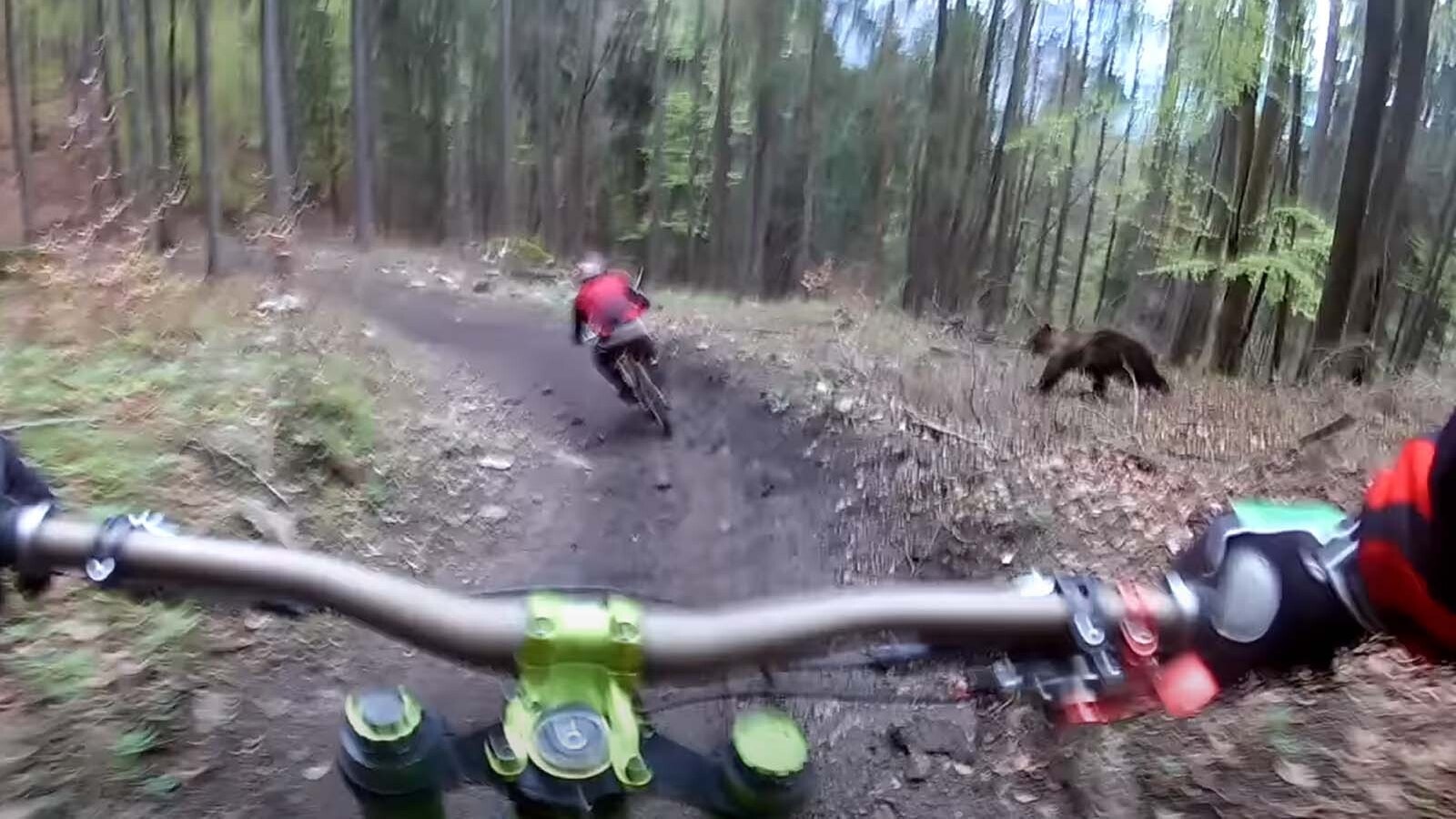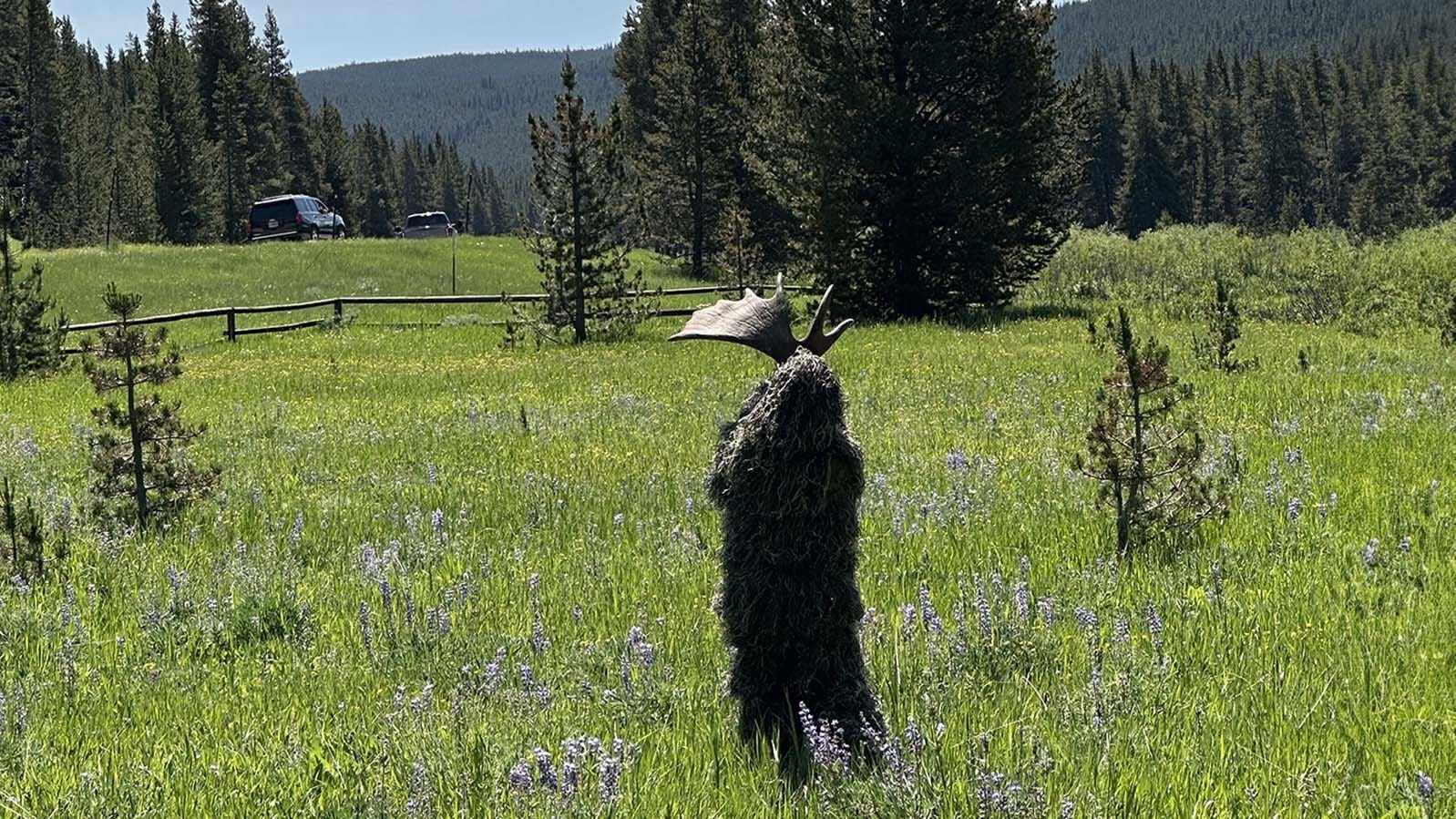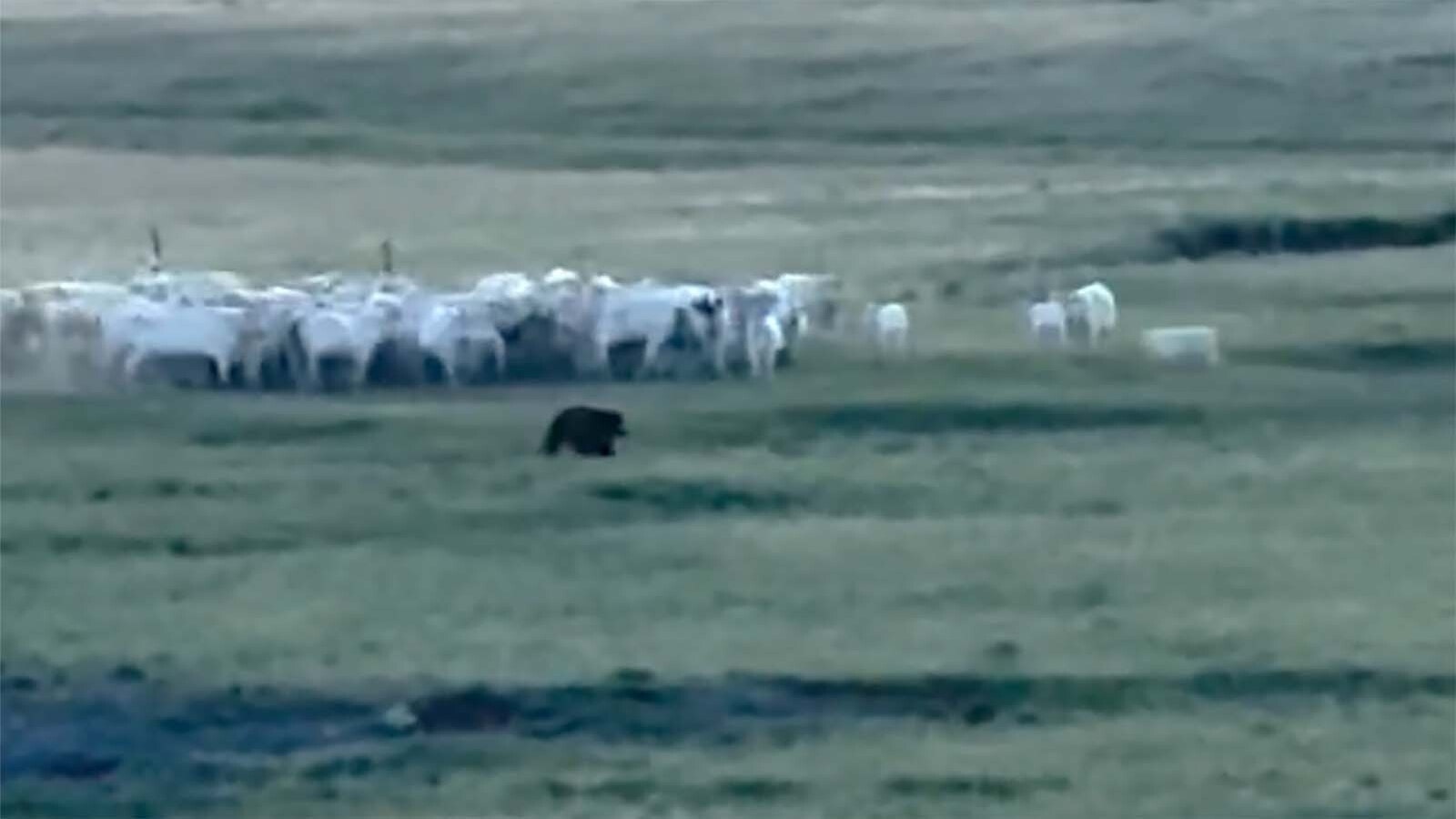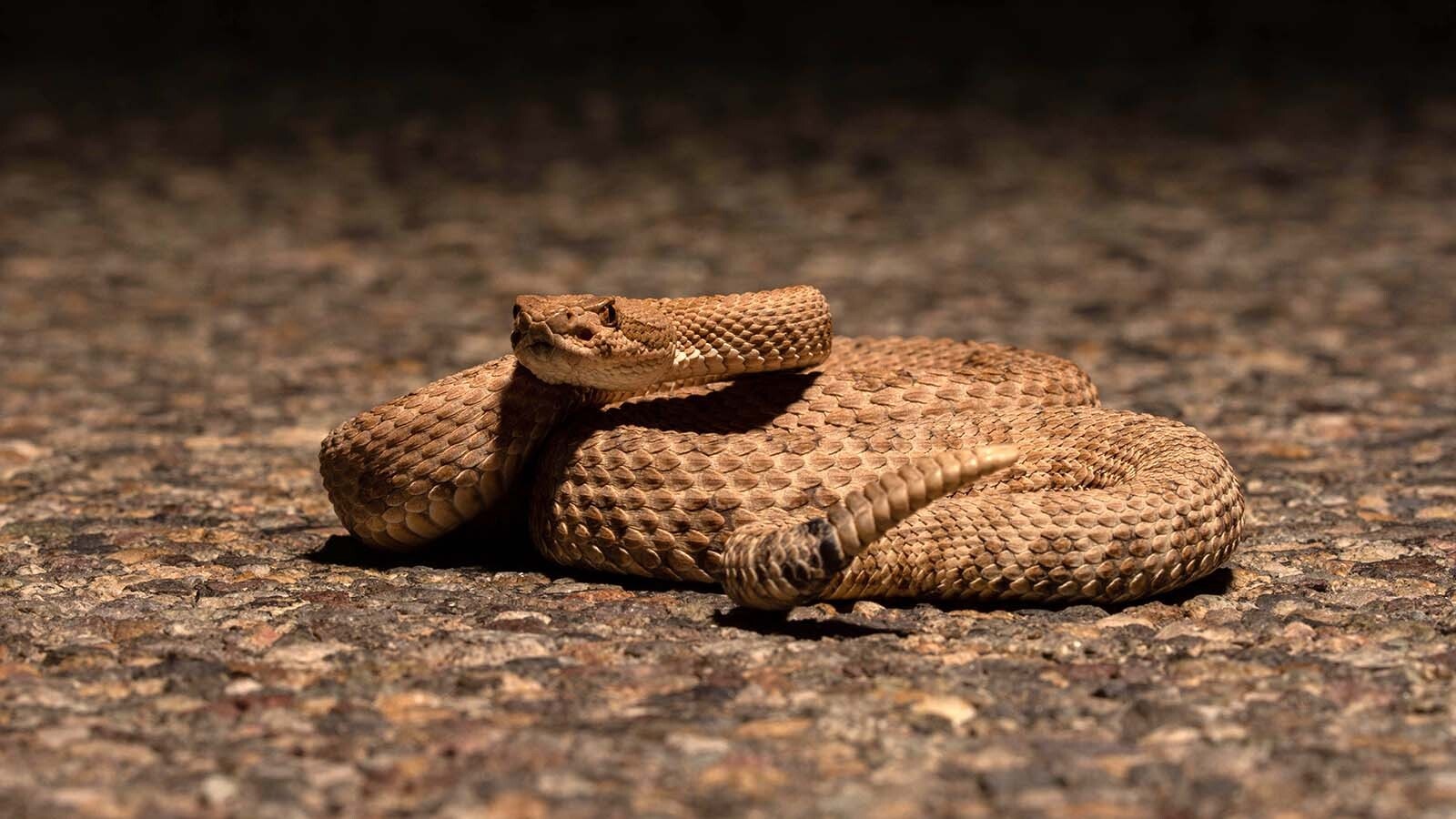Wild horse management in Wyoming will remain business as usual for now, with mustang roundups being the primary means of controlling the horses’ numbers on rangelands and Native American reservations, say Wyoming lawmakers.
However, it is cattle, not mustangs, that are causing most of the damage to the land and conflicts with wildlife, maintains a spokeswoman for a wild horse advocacy group.
Meanwhile, both sides agree that shooting mustang mares with birth control darts could be the best solution to Wyoming’s wild horse quandary.
Combat veterans armed with dart rifles could dispense the birth control among mustang herds, said Chairman Sen. Brian Boner, R-Douglas, during a Tuesday meeting of the Legislature’s Agriculture State and Public Lands and Water Resources Joint Committee.
‘Scapegoats’ For Cattle Damage?
Wyoming’s approach to wild horse management favors the federal Bureau of Land Management’s policy of doing regular round-ups of the animals to cull herds.
The consensus among many ranchers, wildlife conservationists and policymakers in Wyoming is that the mustangs are essentially a feral, invasive species that can damage delicate rangeland. Particularly in places such as the vast Red Desert in central Wyoming, the claim is that mustangs can out-compete mule deer and other wildlife for forage and water.
However, cattle vasty outnumber wild horses on BLM rangelands, Grace Kuhn with the American Wild Horse Campaign told Cowboy State Daily in a recent interview.
The BLM and state policies in Wyoming “scapegoat” mustangs for damage to the land and competition with wildlife that is actually caused by cattle, she said.
Ranchers can lease BLM grazing allotments for a fraction of going market rates, while cows can put excess strain on arid areas such as the Red Desert, Kuhn said.
“They (mustangs) shouldn’t be considered scourges or something to get rid of” on the millions of acres of BLM land where roughly 4,000 of them roam, Kuhn said.
Which Is The Better Species For The Land?
The Wild Horse Campaign also questions which species – cattle or horses – should really be considered “invasive” in arid areas, Kuhn said.
“Horses actually evolved in arid areas and are suited for that environment,” Kuhn said. “Cattle and sheep evolved in moist forested areas.”
Horses also are “like lawnmowers” and eat wild grasses by clipping it with their teeth, she said.
Cattle, on the other hand, wrap their tongues around grass and pull it out by the roots, which is another reason the Wild Horse Campaign contends that they’re ill-suited for some of the places mustangs inhabit.
Mustangs also are federally protected under the Wild Horse and Burro Act of 1971, Kuhn said.
“Wild horses don’t belong to Wyoming,” she said. “They belong to the public and the public lands on which they roam.”
Funds For Tribes, Honor Farm
Meanwhile, the state of Wyoming will support roundup efforts on the Wind River Reservation, Boner said during the committee meeting.
There is $500,000 available in the state budget this year for wild horse management, he said. Most of that, $400,000, will go toward roundup efforts by the Shoshone and Arapaho tribes to thin the number of mustangs on tribal lands.
The other $100,000 will go toward the Wyoming Honor Farm near Riverton.
The honor farm is a reform program for convicts. Convicts selected for the program may stay on the farm and work with mustangs captured off the range during BLM roundups. The idea is to help reform convicts by teaching them responsibility through working with the horses, while also training the horses, making them more likely to be adopted.
Are Birth Control Darts The Answer?
Boner said managing wild horse numbers remains a challenge in Wyoming because of the damage they can do to wildlife habitat and rangelands. Recent BLM mustang roundups brought their numbers down to more manageable levels, but that might not last, he said.
“My concern is that these horse numbers are just going to go back up” unless there are changes in policy, he said.
The Wild Horse Campaign favors dispensing birth control drugs to mustang mares through darting, Kuhn said. That’s already proven effective on some mustang herds in Nevada.
Culling herds through roundups simply causes the horses to respond with higher reproductive rates, exacerbating the problem rather than solving it, she said.
During the committee meeting, Rep. John Eklund, R-Cheyenne, suggested that Wyoming should consider darting mustang mares with birth control drugs.
Boner said there is a group of military veterans that has expressed interest in taking dart rifles into Wyoming rangelands to do that.
He was refereeing to the Veterans For Mustangs Program. Army National Guard veteran Cameron Ring told Cowboy State Daily about that program in August.
The group should be welcome to apply for some of the state’s wild horse management money, Boner said.

